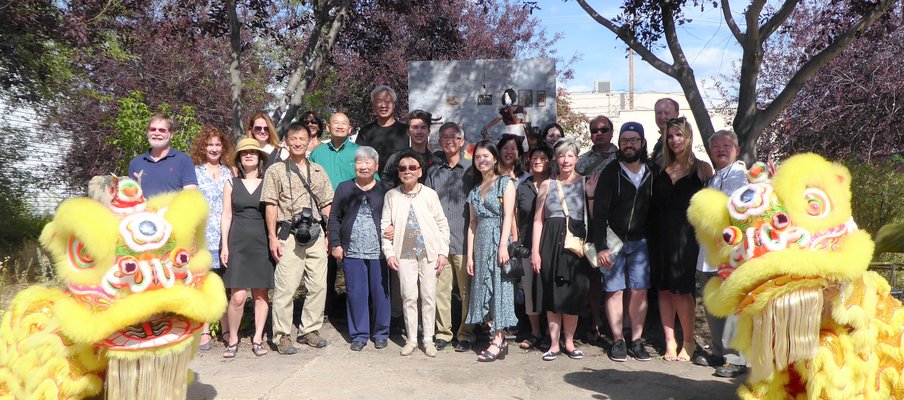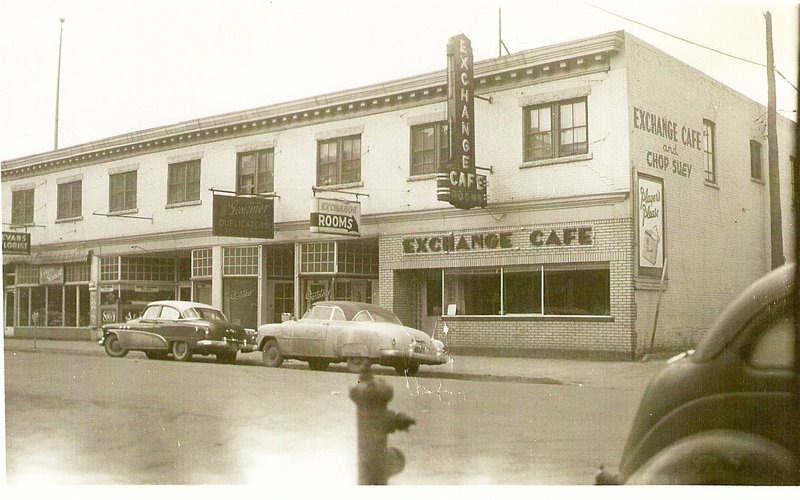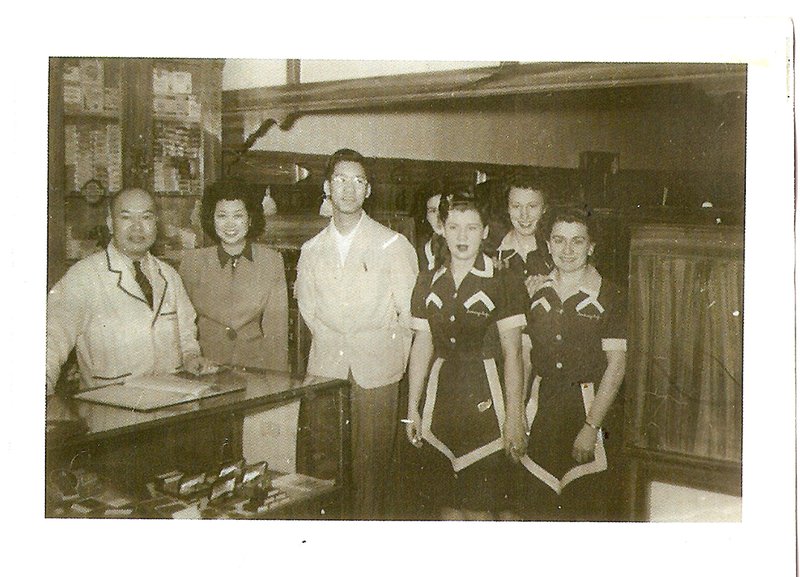
Lost and Found
In this issue
 Engage - Volume 7, Issue 3, Fall/Winter 2017
Engage - Volume 7, Issue 3, Fall/Winter 2017
Related Programs
Cultural Areas
MulticulturalismOne of Regina’s little known immigrant stories was recently brought to light thanks to a Canada-wide storytelling project.
The story of Yee Clun was chosen as one of four stories from across the country for The Lost Stories Project in 2017 to celebrate Canada 150. Each story was transformed into site-specific works of public art.
In 1924, restaurant owner Yee Clun (who passed away in 1967) challenged the “white women’s labour law”, a law forbidding Asian business owners from hiring white women without special permission from the municipality. The law was on the books from 1912 until it was repealed in 1969. “It is a story of overcoming racial prejudice and it is also a story of how racism in the past relates to racism in the present,” says Kristin Enns-Kavanagh, executive director, Saskatchewan History and Folklore Society (SHFS). “Instead of addressing the vulnerability of women workers in general, it picked on Chinese Canadians.”

Ronald Rudin, director, Lost Stories Project, explains, “The thing about this story, for me, was how in one law you managed to embody several different forms of discrimination, both racist and sexist at the same time. We had the story of somebody who was trying to work against the law.” He explains that the project focuses on “little known stories that are usually connected to communities that haven’t had a chance to tell their story.”
Each of the stories chosen for the Lost Stories Project had to be engaging, but needed more. “We seek out stories from the public, we give the stories to artists who have to transform them in to a physical object, and the whole process is documented in film,” adds Rudin.
“It is a story of overcoming racial prejudice and it is also a story of how racism in the past relates to racism in the present.”
Xiao Han was the artist chosen for the project. Han is a photo and performance-based artist who lives in Saskatoon. “I am Chinese and going to be a Canadian now. I know both cultures and it’s interesting how these two societies understand each other and what I understand of both. I feel like a bridge, or a tunnel in between.” The artwork is a series of photographs where Han has recreated period scenes and photographed herself as the characters in the story.
“One of the major points of this project was to make visible the process of constructing the physical object, telling the story of the past through the physical object. We are always passing objects like that in our daily lives, but we have no idea how they got there or the decisions the artists had to make,” says Rudin. Kelly-Anne Reiss was chosen to document the process. Her film will be posted at loststories.ca by the end of 2017.

Community support of the project and a place to put the art work were also critical factors in deciding which stories would be told. Other partners of this project were Regina’s Chinese Cultural Society of Saskatchewan and Regina’s Heritage Community Association.
On August 17, 2017, the art was unveiled in Regina’s Art Park located at the corner of Halifax and 11th Ave. The ceremony included a Lion Dance and was followed by a celebration dinner. According to Han, twenty-seven members of Yee Clun’s family came to Regina and had a reunion because of the art unveiling.
The SHFS was a critical link in the project’s success, taking on much of the local logistical weight. The society is supported by Saskatchewan Lotteries Trust Fund for Sport, Culture and Recreation.

